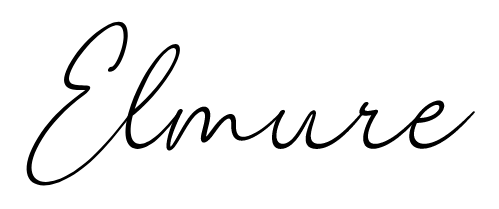Book Recommendations from Andrew Huberman
Neuroscientist and educator Andrew Huberman is on a mission to translate cutting-edge science into tools for everyday life. Through his podcast and research, he explores how the brain and body can be optimized for performance, healing, and longevity. His favorite books reflect this curiosity—spanning psychology, biology, productivity, and personal transformation. These titles go deep into how we function and how we grow. Whether you're looking to improve focus, recover from stress, or understand your mind better, this list is a powerful place to start.
Books Andrew Huberman Recommends

*The Secret Pulse of Time* explores how humans perceive time—and how that perception shapes our decisions, emotions, and productivity. Klein draws on neuroscience, psychology, and philosophy to explain why time seems to fly or drag and how we can manage it more wisely. Huberman recommends it for its insight into circadian rhythms, mental clarity, and attention. The book offers practical advice without dumbing down the science, helping readers take control of their internal clocks. It's an eye-opener for anyone seeking to align daily life with their brain’s natural tempo.

Legendary music producer Rick Rubin offers a soulful, minimalist guide to creativity in *The Creative Act*. Rather than a how-to manual, it’s a meditation on awareness, presence, and the unseen forces that fuel artistry. Huberman loves this book for its neurobiological relevance to flow states and cognitive openness. Rubin encourages readers to be vessels for ideas rather than control freaks over them—a concept backed by neuroscience on idea generation. It's a must-read for creators, thinkers, and anyone looking to reconnect with inspired work.

In this gripping memoir, Oliver Sacks shares his journey as a neurologist, writer, and deeply curious human being. From motorcycle rides to groundbreaking clinical studies, Sacks paints a life full of adventure, intellect, and emotional depth. Huberman values this book for its blend of medical insight and personal vulnerability. It’s a celebration of exploration—both scientific and spiritual—that speaks to anyone navigating a path between passion and purpose. You’ll finish it with a greater appreciation for the complexity of both the brain and the person behind it.

Dr. Paul Conti, a psychiatrist trained at Stanford and Harvard, brings both clinical expertise and compassionate humanity to *Trauma*. The book breaks down how trauma silently shapes lives—and how it can be healed through awareness, connection, and care. Huberman frequently recommends it for understanding how early experiences affect the brain and behavior. It’s clear, actionable, and deeply empathetic, offering hope without sugarcoating the process of recovery. Whether you’re healing personally or supporting others, this book is a roadmap to resilience.

In *Dopamine Nation*, psychiatrist Anna Lembke examines how the modern world is hijacking our brain's reward system. From social media to sugar, we are surrounded by dopamine triggers—and this book explains how to regain control. Huberman references Lembke’s work often when discussing addiction, self-regulation, and behavioral neuroscience. It’s filled with personal stories, scientific research, and practical strategies for restoring balance. A timely, powerful read for anyone seeking mental clarity in an overstimulated age.

*The Prince of Medicine* tells the story of Galen, one of the most influential physicians in history. His approach to medicine—based on observation, theory, and relentless inquiry—laid the groundwork for modern biological science. Huberman admires the book for highlighting how intellectual rigor and curiosity shaped early neuroscience. It’s not just a biography—it’s a fascinating look at how science evolves through experimentation, error, and bold ideas. If you love the history of medicine or the philosophy of science, this is a rich and engaging read.

In *Finding Ultra*, Rich Roll shares his transformation from alcoholic corporate lawyer to elite plant-powered endurance athlete. His story is a testament to neuroplasticity, discipline, and the human body’s ability to reinvent itself. Huberman praises this book for its blend of personal grit and physiological insight. It offers more than motivation—it shows how lifestyle, mindset, and nutrition can rewire your life at every level. A powerful read for anyone looking to break limits and pursue sustainable change.

What does science really say about meditation? In *Altered Traits*, Goleman and Davidson explore how long-term mindfulness practice changes the brain—and the person. Drawing from decades of research, the authors show how traits like compassion, focus, and emotional resilience can become permanent features through training. Huberman often cites this book when discussing neuroplasticity and emotional regulation. It's a smart, evidence-based look at how meditation is more than a mood booster—it's a path to rewiring the self.

Breathing is automatic, but it’s also trainable—and transformative. In *Breath*, journalist James Nestor travels the world to uncover the science and tradition of breathing practices that can boost health, focus, and longevity. Huberman frequently recommends it for its blend of storytelling and hard science. From ancient techniques to cutting-edge pulmonary research, the book shows how something so simple can be profoundly powerful. Whether you're an athlete or a stressed-out desk dweller, this book will change how you think about your next inhale.

*Deep Work* is a manifesto for reclaiming focus in a world of constant distraction. Newport argues that the ability to concentrate deeply is a superpower—and one that’s increasingly rare. Huberman supports this with neuroscience, emphasizing how sustained attention strengthens brain networks and improves cognitive flexibility. The book provides actionable systems to cultivate meaningful work and protect time from shallow tasks. A must-read for anyone serious about productivity, creativity, and cognitive optimization.
